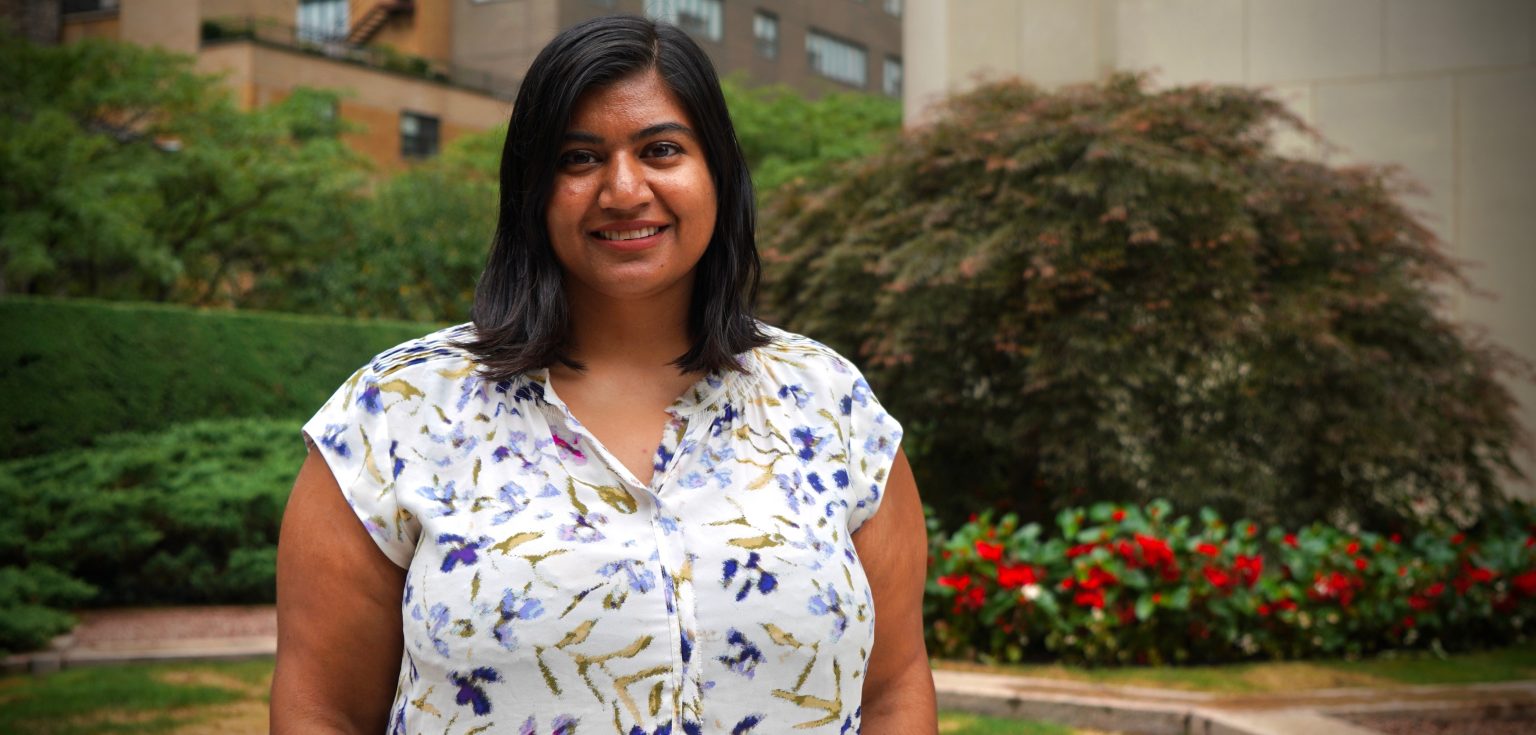“The goal is to see if adolescents represent this second window of opportunity to promote health and well-being,” said Chaku, a doctoral candidate in developmental psychology at the Graduate School of Arts and Sciences. “I’m interested in promoting cognitive development and channeling youth desires and interests in positive ways.”
A few months ago, she was awarded a $20,000 American fellowship from the American Association of University Women, one of the world’s oldest leading supporters of graduate women’s education. The award funds her final year of graduate school, allowing her focus on writing her dissertation.
“Natasha’s research fills an important gap in the current literature,” said her longtime Fordham mentor, Lindsay Till Hoyt, Ph.D., assistant professor of psychology. “She understands the most pressing issues facing youth today.”
For the past five years, Chaku has studied adolescent transition in Hoyt’s Youth Development, Diversity, and Disparities (3D) Lab. Her dissertation focuses on how adolescents’ cognitive skills are affected by physical activity. She’s especially interested in executive functioning skills—the skills that help us make decisions and achieve our goals. One example is the ability to regulate our emotions; another is the ability to make a good choice in a risky situation.
Chaku, who works with other students in the lab, said her team thinks that exergames might improve cognitive skills, particularly in adolescents. At this stage of life, they are especially sensitive to environmental influences, she said. And for many teenagers, it’s also a time of “dramatically declining” physical activity.
“Little kids like to run around. Once your body starts changing, you stop running around as much, particularly if you’re a girl. Your body is literally changing shape. Your clothes might not fit. You might feel uncomfortable wearing shorts in gym class or having to change or wear a bra,” Chaku said. “That may make you feel uncomfortable in your own body, and that can lead to decreases in physical activity.”
To understand how exergames affect our cognitive skills—and our physical bodies—Chaku and her team studied a group of adolescents from the Bronx.
First, they measured the teens’ cognitive skills through two mind games. One was an abstract, logic-based game; the other focused on emotional skills.
Next, they collected the teens’ saliva. Using the samples, they measured the amount of testosterone, a sex hormone that increases after exercise, and the number of brain-derived neurotrophic factors (BDNF), or hormones released while the brain is building new neurons.
“We think one of the reasons your cognitive abilities are so much better post-exercise is because your brain is releasing more BDNFs,” Chaku explained.
Then the teens played either an exergame or a video game. For 20 minutes, half the participants played Shape Up, an Xbox exergame; the others played Sonic Mania, a more sedentary video game (to compare the exercise results with the non-exercise results). Afterward, the teenagers’ saliva was collected again to measure the change in their testosterone and BDNF levels. Finally, the teens redid the executive functioning tests to evaluate how their cognitive skills had changed after exercise.
Chaku’s team is still calculating their results, but she said their preliminary data suggest that exercise improves executive functioning skills, just as they thought. What they didn’t expect was that the teenagers tended to choose riskier responses on post-exercise tests. But that’s not necessarily a bad thing, she said.
“Risk-taking can have a bad rap. Sometimes those risks are negative because you’re engaging in, for example, drug use. But a lot of times, risks are really positive. Asking someone out that you like can be really risky, but it could lead to something positive,” Chaku said. “It’s less about whether they’re risky or not and more about how can we channel those risks in positive ways?”
Unlike many health studies and clinical trials, the participants in Chaku’s study were primarily black and Hispanic. Her team targeted approximately 120 adolescents, aged 9 to 15, from the Bronx.
“Interventions may work in different ways, depending on cultural differences. It’s important to get data from those adolescents,” Chaku said.
She said she hopes her research results will lead to the development of physical activity interventions for adolescents, and that they, in turn, lead to positive risk-taking behaviors.
“When you go to camp—before you meet new friends—doing a physical activity might prime you to be more likely to introduce yourself to people,” Chaku said. “Or having a physical activity intervention right before taking a challenging class … that might prime you to take more risks in that class.”


